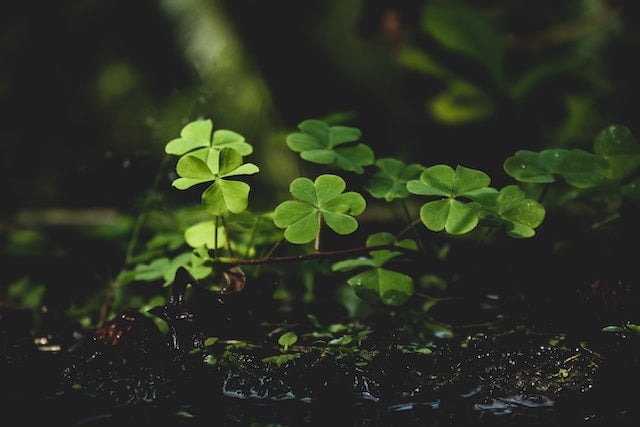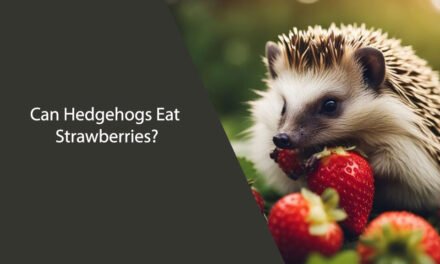Tortoises are known for their herbivorous diet, but not all plants are safe for them to eat. Clover is a common plant found in many gardens and fields, and it’s natural to wonder if it’s safe for tortoises to consume. In this article, we will explore whether tortoises can eat clover and provide you with all the information you need to keep your pet healthy.
Clover is a type of legume that is often used as a forage crop for livestock. It’s a rich source of protein and fiber, making it a nutritious food for many animals. However, not all animals can digest clover easily, and some may even have an adverse reaction to it. As tortoises have a unique digestive system, it’s important to understand whether clover is a safe food for them to eat.

Table of Contents
Understanding Tortoises’ Diet
When it comes to feeding tortoises, it is important to understand their dietary needs. Tortoises are herbivores, which means they require a diet that is high in fiber and low in protein and fat. In this section, we will discuss the importance of fiber and the role of calcium in a tortoise’s diet.
Importance of Fiber
Fiber is an essential component of a tortoise’s diet. It helps to promote healthy digestion and prevents constipation. Tortoises require a diet that is high in fiber to keep their digestive system functioning properly. A diet that is low in fiber can lead to digestive problems, such as impaction.
Tortoises can obtain fiber from a variety of sources, including hay, grasses, and leafy greens. It is important to provide a variety of fiber sources to ensure that the tortoise is getting all of the nutrients it needs.
Role of Calcium
Calcium is another important component of a tortoise’s diet. Calcium is necessary for the development and maintenance of strong bones and shells. A diet that is low in calcium can lead to weak bones and shells, which can be dangerous for the tortoise.
Tortoises can obtain calcium from a variety of sources, including calcium-rich vegetables, such as kale and collard greens, and calcium supplements. It is important to provide a balanced diet that includes both fiber and calcium to ensure that the tortoise is getting all of the nutrients it needs.
In conclusion, understanding a tortoise’s dietary needs is essential for their health and well-being. A diet that is high in fiber and calcium will help to promote healthy digestion and strong bones and shells. By providing a balanced diet that includes a variety of fiber and calcium sources, we can ensure that our tortoises are healthy and happy.
Can Tortoises Eat Clover?
Clover is a type of plant that is often found in gardens and fields. It is a member of the legume family and is known for its small, three-leafed leaves. Many people wonder if clover is safe for tortoises to eat. In this section, we will explore the health benefits and possible risks of feeding clover to tortoises.
Health Benefits
Clover is an excellent source of fiber, which is essential for maintaining a healthy digestive system in tortoises. It also contains high levels of vitamin C, which is important for maintaining a healthy immune system. In addition, clover is a good source of calcium, which is essential for maintaining strong bones and healthy teeth.
Possible Risks
While clover is generally safe for tortoises to eat, there are some potential risks to be aware of. One of the main concerns is that clover contains high levels of oxalic acid, which can bind to calcium and prevent its absorption. This can lead to calcium deficiency and other health problems over time.
Another potential risk of feeding clover to tortoises is that it can be high in protein. While protein is important for tortoises, too much can lead to kidney problems and other health issues. Therefore, it is important to feed clover in moderation and to ensure that your tortoise is getting a balanced diet.
In conclusion, while clover can provide some health benefits for tortoises, it is important to be aware of the potential risks and to feed it in moderation. As always, it is best to consult with a veterinarian or a reptile specialist to ensure that your tortoise is getting the best possible diet.
How to Feed Clover to Tortoises
Preparation
When feeding clover to tortoises, it is important to ensure that it is free of any harmful pesticides or chemicals. We recommend growing your own clover or purchasing organic clover from a reputable source.
Before feeding the clover to your tortoise, make sure to rinse it thoroughly with water to remove any dirt or debris. You can also chop the clover into smaller pieces to make it easier for your tortoise to eat.
Feeding Frequency
Clover can be a great addition to your tortoise’s diet, but it should be fed in moderation. We recommend feeding clover to your tortoise once or twice a week as part of a varied diet that includes other leafy greens, vegetables, and fruits.
It is important to monitor your tortoise’s weight and adjust their diet accordingly. Overfeeding clover or any other food can lead to obesity and other health issues.
In summary, feeding clover to tortoises can be a healthy and enjoyable addition to their diet when done in moderation and with proper preparation.

Alternatives to Clover in Tortoises’ Diet
Leafy Greens
While clover is a great source of nutrition for tortoises, there are other leafy greens that can be incorporated into their diet. Some of the common leafy greens that can be given to tortoises include:
- Dandelion Greens
- Mustard Greens
- Collard Greens
- Turnip Greens
- Endive
These leafy greens are rich in vitamins and minerals, and can be a great addition to your tortoise’s diet.
Fruits
Fruits can be a great source of nutrition for tortoises, but should be given in moderation. Some of the fruits that can be given to tortoises include:
- Apples
- Berries
- Melons
- Papaya
- Mango
It is important to note that fruits should not make up the majority of your tortoise’s diet, as they are high in sugar.
Vegetables
Vegetables are another great source of nutrition for tortoises. Some of the common vegetables that can be given to tortoises include:
- Carrots
- Squash
- Zucchini
- Bell Peppers
- Cabbage
These vegetables are rich in vitamins and minerals, and can be a great addition to your tortoise’s diet.
It is important to note that while these alternatives can be incorporated into your tortoise’s diet, it is still important to provide a balanced diet that includes a variety of foods. Consult with a veterinarian or a tortoise expert to ensure that your tortoise is receiving the proper nutrition.

Frequently Asked Questions
What plants are safe for tortoises to eat?
Tortoises are herbivores and require a diet that is high in fiber and low in protein. Some safe plants for tortoises to eat include leafy greens, such as kale and collard greens, and vegetables, such as carrots and squash. It is important to avoid feeding tortoises plants that are toxic or potentially harmful, such as avocado, rhubarb, and tomato leaves.
Can tortoises safely eat clover?
Yes, tortoises can safely eat clover, but it should be fed in moderation. Clover is high in protein, which can be harmful to tortoises if consumed in large quantities. Additionally, some types of clover may contain compounds that can interfere with a tortoise’s ability to absorb calcium.
What types of clover are safe for tortoises?
Red clover and white clover are both safe for tortoises to eat. However, it is important to ensure that the clover has not been treated with pesticides or herbicides, as these chemicals can be harmful to tortoises.
Is clover a good source of nutrition for tortoises?
Clover is a good source of fiber and can be a healthy addition to a tortoise’s diet. However, it should not be the sole source of nutrition, as it is low in some essential vitamins and minerals that tortoises require.
What are some other safe foods for tortoises?
In addition to clover, some other safe foods for tortoises include dandelion greens, plantain, and hibiscus flowers. It is important to vary a tortoise’s diet to ensure that they are receiving all of the necessary nutrients.
Can tortoises eat dandelions and other common garden weeds?
Yes, tortoises can safely eat dandelions and many other common garden weeds, such as chickweed and plantain. However, it is important to avoid feeding tortoises weeds that have been treated with pesticides or herbicides.





